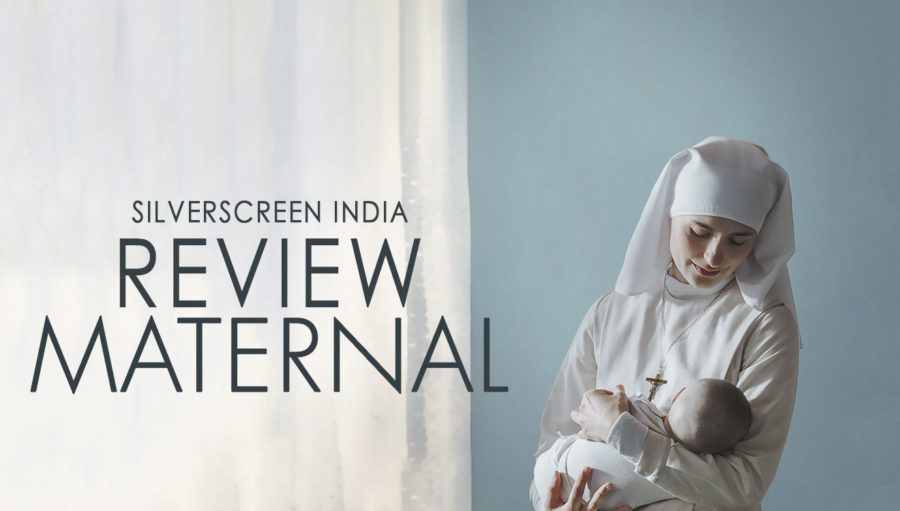Director: Maura Delpero
Cast: Agustina Malale, Lidiya Liberman, Renata Palminiello, Denise Carrizo, Marta Lubos, Isabella Cillia
Maura Delpero’s Maternal (2019) is set inside a Buenos Aires Christian convent and a Hogar (home for teenage single mothers), where the discipline of the religious life is in constant friction with the chaotic personalities of the inmates of the institution. The narrative is centred on Sister Paula, a young Italian nun, a new entrant to the convent. She is gentle, radiating a kind of love and compassion that is palpable. She looks content in her faith. When she starts to take care of an abandoned child at the Hogar, the young nun is faced with a flush of complex emotions she finds difficult to process.
Maternal, which has a nearly all-women cast and crew, is a well-acted delicately narrated drama about womanhood and the ambivalences it runs into when it enters the terrain of motherhood. With great poise, the film studies its characters and the space that engulfs them. It doesn’t possess an air of piousness but uses the religion and the rigidity inside the convent as a perfect backdrop for the emotional conflicts in the narrative to unfold.
Delpero’s filmmaking has a lovely austere quality. The teenage single mothers in the convent are always under the supervision of the nuns. In a scene where the girls dance to pop music on a disco floor inside the Hogar, the camera moves to the exterior to reveal the nuns waiting on a bench, overseeing the event. The girls throw a tantrum at the dinner table every day, implying their disregard for the chaste motherliness the nuns insist on holding. For the girls, motherhood is an unfortunate accident that tied them down when they were the most unprepared. For the nuns, it is a chosen way of life.
Lu (Agustina Malale, a fantastic non-professional actor), a teenage mother, is the Hogar’s ‘lost sheep’. Her desire for freedom forms one of the central elements of the narrative. She is hotheaded, a foil to the Hogar’s Christian way of life. In her introductory scene, she is in the washroom, trimming her pubic hair and getting ready for a date with an abusive lover. Her little daughter Nina longs for her to come for a hug every night, but Lu can’t meet the demands of motherhood. She feels alarmed when Paula grows close to Fatima, her roommate, and Nina.
Delpero, who has a background in documentary filmmaking, uses static shot﹣wide and close-ups ﹣interpreting the Christian convent as a constant entity, immune to internal turbulences or the developments in the outside world. In fascinating wide shots of the two-storey building, the film patiently watches the inmates walk in a neat line to the prayer hall every day. In a close-shot that resembles a painting, you see Paula and Nina sleeping on her bed in a tight embrace, a deep sense of calmness on their faces.
Delpero does not dwell on personal histories but uses masterful writing to throw clues on the events that landed the girls in the convent. Although the film has no male characters other than Fatima’s little boy, the effects of patriarchy are omnipresent. The wounds on Lu’s body. References to Fatima’s traumatic past where she was abused by her stepfather and abandoned by her mother. The nuns’ lectures to the children on Jesus, Joseph and the importance of a conventional family model.
While the other nuns are cogs in the church’s machinery, who have to follow the code of conduct, notwithstanding how removed they might be from the context, Paula lets herself be driven by the circumstances. Using her relationship with Nina, Delpero tries to dismantle myths about motherhood and brings the image of a mother closer to the ground where they are no rules but only instincts.
That said, the film doesn’t deviate from the traditional association of sacredness with a beautiful young virgin. It uses close-up shots of Lidiya Liberman’s beautiful face and her tall figure like a shorthand to set her against the everydayness of her older colleagues and the girls.
Recommended
Towards the end, the film moves away from its objective style for a more dramatic finish. It doesn’t judge the characters or liberate them from the clutches of an unjust world, but take them to a point where they can look one another in the eye and be an ally.
It is its emphasis on humanness that makes Maternal a deeply moving film.
****
Maternal was screened at the 51st International Film Festival of India at Goa.
****
The Maternal review is a Silverscreen original article. It was not paid for or commissioned by anyone associated with the film. Silverscreenindia.com and its writers do not have any commercial relationship with movies that are reviewed on the site.



